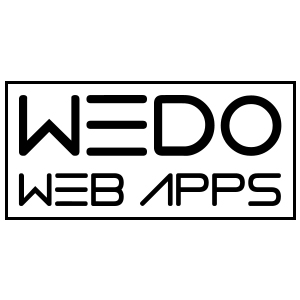Laravel vs. Other PHP Frameworks: A Feature Comparison
 WEDOWEBAPPS LLC
WEDOWEBAPPS LLC
In the ever-evolving landscape of web development, selecting the right framework is crucial for building efficient, scalable, and maintainable applications. PHP, being one of the most widely used server-side scripting languages, offers a plethora of frameworks that cater to various development needs. Among these, Laravel has risen to prominence, often being compared to other popular PHP frameworks like Symfony, CodeIgniter, and Zend. This article provides a comprehensive comparison of Laravel with other PHP frameworks, helping businesses and developers make informed decisions when choosing a framework for their projects.
Why Choosing the Right PHP Framework Matters
The choice of a PHP framework can significantly impact the development process, application performance, and long-term maintenance. A suitable framework not only accelerates development through reusable components and libraries but also ensures that the application adheres to best practices in security, scalability, and performance.
For businesses seeking professional solutions, partnering with a Laravel Development Company or leveraging PHP web development services ensures that the chosen framework aligns with their specific requirements and industry standards.
Overview of Popular PHP Frameworks
Before diving into the comparison, it's essential to understand the key features of the frameworks in question:
Laravel
Release Year: 2011
Architecture: Model-View-Controller (MVC)
Key Features: Eloquent ORM, Blade templating engine, built-in authentication, Artisan CLI, robust routing, middleware support.
Symfony
Release Year: 2005
Architecture: Component-based
Key Features: Reusable components, highly customizable, robust architecture, extensive documentation, large community.
CodeIgniter
Release Year: 2006
Architecture: Model-View-Controller (MVC)
Key Features: Lightweight, easy to learn, minimal configuration, excellent performance, small footprint.
Zend Framework (now Laminas)
Release Year: 2006
Architecture: Component-based
Key Features: Enterprise-ready, highly customizable, robust security features, extensive libraries, modular structure.
Feature Comparison
1. Ease of Use and Learning Curve
Laravel: Known for its elegant syntax and developer-friendly tools, Laravel offers an intuitive learning curve. Its comprehensive documentation and vibrant community support make it accessible for both beginners and experienced developers. Features like Artisan CLI and Blade templating engine simplify common tasks, enhancing productivity.
Symfony: Symfony is highly customizable but comes with a steeper learning curve compared to Laravel. Its flexibility is a double-edged sword; while it allows for extensive customization, it requires a deeper understanding of the framework's architecture and components.
CodeIgniter: CodeIgniter is celebrated for its simplicity and ease of use. With minimal configuration required, developers can quickly start building applications. Its straightforward approach makes it an excellent choice for beginners or projects with tight deadlines.
Zend Framework (Laminas): Zend is designed for enterprise-level applications and, as such, has a more complex architecture. It requires a solid understanding of PHP and object-oriented programming principles, making the learning curve steeper.
Winner: Laravel strikes the best balance between ease of use and advanced features, making it accessible while still powerful enough for complex applications.
2. Performance
Laravel: While Laravel offers numerous features that enhance development speed and functionality, it can be slightly heavier compared to more minimalist frameworks. However, with proper optimization techniques like caching, lazy loading, and efficient database queries, Laravel applications can achieve high performance.
Symfony: Symfony is known for its robustness and scalability, making it suitable for large-scale applications. Its performance is comparable to Laravel, especially when optimized correctly. Symfony’s component-based architecture allows developers to use only the necessary components, reducing overhead.
CodeIgniter: CodeIgniter is renowned for its exceptional performance, primarily due to its lightweight nature and minimalistic design. It has a small footprint, which translates to faster load times and lower resource consumption, making it ideal for high-performance applications.
Zend Framework (Laminas): Zend is built for enterprise-level performance, handling large volumes of traffic and complex operations efficiently. Its modular structure allows for optimized performance by loading only necessary components.
Winner: CodeIgniter leads in pure performance due to its lightweight design, but Laravel and Symfony are highly performant when properly optimized.
3. Security
Laravel: Laravel provides robust security features out-of-the-box, including protection against SQL injection, cross-site request forgery (CSRF), and cross-site scripting (XSS). Its authentication and authorization systems are highly secure, ensuring that applications built with Laravel are protected against common vulnerabilities.
Symfony: Symfony offers extensive security features and is often used for applications that require stringent security measures. It provides a comprehensive security component that includes authentication, authorization, and protection against various attacks.
CodeIgniter: CodeIgniter includes basic security features such as input filtering and CSRF protection. However, it may require additional configuration and third-party libraries to achieve the same level of security as Laravel or Symfony.
Zend Framework (Laminas): Zend is designed with security in mind, offering a robust set of security features suitable for enterprise applications. It provides comprehensive tools for authentication, authorization, and data encryption, ensuring high security standards.
Winner: Zend Framework (Laminas) and Symfony are top contenders for security, with Laravel also offering strong security features that are sufficient for most applications.
4. Scalability
Laravel: Laravel's modular architecture and support for microservices make it highly scalable. Features like queues, event broadcasting, and caching allow applications to handle increased loads effectively. Additionally, Laravel integrates seamlessly with cloud services, enhancing its scalability.
Symfony: Symfony is highly scalable due to its component-based architecture. It allows developers to build large, complex applications by leveraging reusable components. Symfony’s flexibility makes it suitable for projects that need to scale significantly over time.
CodeIgniter: While CodeIgniter is scalable to a certain extent, it may require more effort to scale compared to Laravel or Symfony. Its simplicity can become a limitation when dealing with very large or complex applications.
Zend Framework (Laminas): Zend is built for scalability, especially for enterprise applications. Its modular structure and support for microservices allow for efficient scaling, making it an excellent choice for businesses expecting significant growth.
Winner: Symfony and Zend Framework (Laminas) excel in scalability, with Laravel also performing exceptionally well in scalable environments.
5. Community and Ecosystem
Laravel: Laravel boasts one of the largest and most active communities in the PHP ecosystem. This vibrant community contributes to a rich ecosystem of packages, extensions, and resources, making it easier for developers to find solutions and support. Laravel's ecosystem includes tools like Laravel Forge, Laravel Vapor, and Laravel Nova, which enhance development and deployment processes.
Symfony: Symfony has a strong and active community, particularly among enterprise developers. Its ecosystem is robust, with numerous reusable components and bundles that extend its functionality. Symfony's focus on reusability and modularity has resulted in a comprehensive ecosystem that supports a wide range of application needs.
CodeIgniter: CodeIgniter has a smaller but dedicated community. While it may not have as extensive an ecosystem as Laravel or Symfony, it still offers a range of libraries and resources that support development needs. However, finding specialized packages may be more challenging compared to other frameworks.
Zend Framework (Laminas): Zend, now known as Laminas, has a solid community, especially within enterprise circles. Its ecosystem is comprehensive, with numerous components and extensions tailored for large-scale applications. However, its community is not as large or active as Laravel’s, which might limit the availability of community-driven resources.
Winner: Laravel takes the lead with its large, active community and extensive ecosystem, making it easier for developers to find support and resources.
6. Documentation and Learning Resources
Laravel: Laravel offers extensive and well-organized documentation, making it easier for developers to learn and use the framework effectively. Additionally, there are numerous tutorials, courses, and books available, catering to various learning styles and levels of expertise.
Symfony: Symfony provides comprehensive and detailed documentation, covering all aspects of the framework. Its documentation is well-structured, but the complexity of the framework means that it might be more challenging for beginners to grasp.
CodeIgniter: CodeIgniter’s documentation is straightforward and easy to understand, making it accessible for beginners. However, it may lack the depth and breadth found in Laravel or Symfony’s documentation, particularly for more advanced features.
Zend Framework (Laminas): Zend offers thorough documentation, especially for enterprise-level features. However, the complexity of the framework can make the documentation dense and harder to navigate for new users.
Winner: Laravel excels with its clear, comprehensive, and user-friendly documentation, supported by a wealth of additional learning resources.
7. Testing and Debugging
Laravel: Laravel provides built-in support for testing with PHPUnit, making it easier to write and run tests. Features like Laravel Dusk for browser testing and Laravel Telescope for debugging enhance the testing and debugging experience, ensuring applications are robust and reliable.
Symfony: Symfony includes strong testing tools and integrates seamlessly with PHPUnit. Its focus on best practices ensures that applications are testable and maintainable, with extensive support for functional and unit testing.
CodeIgniter: CodeIgniter offers basic support for testing, but it may require additional configuration or third-party tools to achieve comprehensive testing capabilities. Its simplicity means that advanced testing features are not as readily available as in Laravel or Symfony.
Zend Framework (Laminas): Zend provides robust testing and debugging tools, integrating well with PHPUnit and other testing frameworks. Its enterprise focus ensures that applications built with Zend are thoroughly tested and maintain high reliability standards.
Winner: Laravel stands out with its integrated testing tools and advanced debugging features, making it easier for developers to ensure application quality.
When to Choose Laravel Over Other Frameworks
Given the comparison above, Laravel is an excellent choice for many projects due to its balance of ease of use, performance, scalability, and a rich ecosystem. Here are scenarios where Laravel shines:
Rapid Development Needs: Startups and businesses looking to develop applications quickly benefit from Laravel’s built-in tools and streamlined development process.
Custom Web Applications: Projects that require extensive customization and flexibility can leverage Laravel’s robust features and active community.
Scalable Applications: Applications expected to grow and handle increasing traffic can utilize Laravel’s scalability features and integration with cloud services.
Developer-Friendly Environments: Teams seeking a framework with excellent documentation, a supportive community, and a wealth of learning resources will find Laravel highly appealing.
Modern Web Development Practices: Laravel’s adherence to modern development practices and principles ensures that applications are maintainable and future-proof.
When to Consider Other Frameworks
While Laravel is versatile, there are situations where other frameworks might be more suitable:
Enterprise-Level Applications: Symfony or Zend might be better choices for highly complex, enterprise-level applications that require extensive customization and integration with other enterprise systems.
Performance-Critical Applications: For applications where performance is the utmost priority and minimal overhead is required, CodeIgniter’s lightweight nature may be advantageous.
Specific Use Cases: Projects that align closely with the strengths of other frameworks, such as Drupal for content-heavy websites or Laravel for API-driven applications, might benefit from those specific frameworks.
Conclusion
Choosing the right PHP framework depends on the specific needs of your project, your team's expertise, and your long-term goals. Laravel stands out as a versatile, developer-friendly framework that offers a perfect balance of features, performance, and ease of use, making it a top choice for a wide range of web development projects.
However, it's essential to evaluate each framework's strengths and align them with your project requirements. Whether you opt for Laravel or another PHP framework, partnering with a professional Laravel Development Company or PHP web development services provider ensures that your application is built with best practices, security, and scalability in mind.
By carefully considering the unique features and advantages of each framework, businesses can make informed decisions that lead to successful, high-performing web applications tailored to their specific needs.
Subscribe to my newsletter
Read articles from WEDOWEBAPPS LLC directly inside your inbox. Subscribe to the newsletter, and don't miss out.
Written by

WEDOWEBAPPS LLC
WEDOWEBAPPS LLC
WeDoWebApps provides exceptional charismatic services in IT services. We have various kind of services such as graphics, web designs, mobile applications for corporate clients or looking for a top of the line proficient. WeDoWebApps is enthusiastic about website development and design and always try to create a tailored solution for your professional need. We provide solutions in information, technology, automation, communication, and business solutions to offer better E-commerce Website Development Services and Mobile App Development Services as per the prerequisite of the shopper, Wedowebapps proficiently look forward towards flawlessness and quality.